All Politics Is National
Tip O'Neill was famous for once having advised his fellow Democrats that "all politics is local." That's not true anymore, and that's unfortunate.
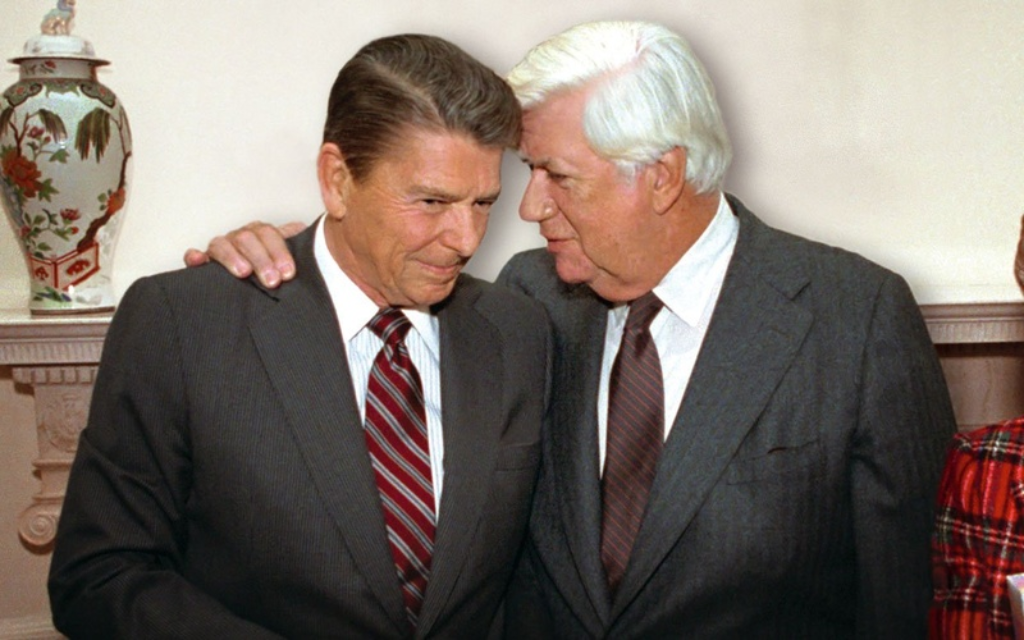
Former Speaker of the House Tip O’Neill was famous for once having remarked that “all politics is local.” By this, he meant that, especially in elections for the House of Representatives, what happened at the local level and how a Congressman interacted with his constituents at the District level were usually more important in Congressional elections than national issues. For much of O’Neill’s time in office, of course, this was largely true. Frequently, either Democrats or Republicans would try to nationalize the fight for control of Congress, but it generally didn’t succeed. Instead, voters seemed to pay more attention to what their Member of Congress was doing for the district than to national issues. Elections for Senator and, of course, the Presidency were understandably different, but at the Congressional level at least O’Neill was proven correct time and again.44
As Telly Davidson notes at The American Conservative, though that’s no longer the case and we’ve been paying the price for the nationalization of Congressional elections ever since:
Former Speaker of the House Thomas “Tip” O’Neill famously declared that “all politics is local.” And for most of O’Neill’s colorful life, that was true. When he entered Boston politics as a young man in the pre-war 1930s—when radio and “talking pictures” were still relatively new-fangled technology, and the influence of TV (let alone the Internet) was way off—most state and local elections were decided on old-fashioned retail politics and who could bring home the most bacon (or at least promised to).
But that era ended forever in 1994. That year, a brazen House Minority Whip named Newt Gingrich effectively nationalized all 435 locally-based congressional seats—as well as the one-third of the Senate and the vast majority of governor’s mansions (including California, New York, and Texas) up for grabs that year—for a massive political repudiation of Bill and Hillary Clinton. The result was perhaps the biggest “Republican Revolution” in modern history, as the GOP gained 54 seats in the House and eight in the Senate, and high profile Democrats at every level suffered stunning defeats—including New York Governor Mario Cuomo and Texas Governor Ann Richards.
Davidson goes on to list some of the elections that have taken place since 1994 and the extent to which they have become nationalized, and then comes up with this hypothesis:
As any federalist will tell you, a great deal of why these elections have become “national” instead of “local” is because the federal government plays a bigger role today in every aspect of our lives, a trend that began in the Civil Rights era. From 1970s desegregation issues like busing and low-income and racial diversity housing mandates, to Reagan and Clinton-era culture wars over compulsory sex-ed, prohibitions on creationism, lawsuits over church and state, all the way up to Planned Parenthood decisions and health care, nationalized issues have galvanized interest groups and mobilized voters for the polls.
And don’t think that savvy players like Newt Gingrich and Karl Rove didn’t harness this from the top down in every election since 1994. They encouraged local conservatives to not only run for local offices but to use a uniform set of talking points based on the national hot-button issues of the day—a strategy soon adopted by Democrats. (Sarah Palin is perhaps the most recognizable but certainly not the only one of the Gingrich-era pols who began their careers on on school boards and city councils.)
One only need read political histories like Thomas Frank’s (most unsympathetic) What’s the Matter With Kansas? to find one example after another across the country. Local school board, city council, county supervisor, and state legislature seats were increasingly decided by the candidates’ positions on Roe v. Wade, gay rights, Hollywood immorality, gun control, and prayer in schools—issues that no local elected official or judge could actually change or meaningfully influence even if they wanted to.
(…)
America, owing to its Founders’ vision, started out with a local and regional first-past-the-post system that makes (what the Founders thought would be) only occasional allowance (war powers, foreign trade and treaties, and eventually judicial review) for strong federal action. Unfortunately, as it stands today, we currently have the worst of both worlds. It would be wonderful to see an off-year election where local concerns and voices were truly “centered” in the discussion, a midterm that truly put 500 or 600 local spotlights on the individual and unique needs and cultures of individual communities and people, and truly reflected our diversity. Not a hyped-up online and cable smackdown referendum on the current occupant of 1600 Pennsylvania Avenue. Enough of the virtue-signaling, prattling, and pandering about things of which, at the end of the day, local candidates have no control.
Well, as Milton Berle might have framed it in one of his jokes, I’d love to see it. But considering the glidepath of the last three decades, don’t hold your breath.
By and large, Davidson is right to frame the beginning of the end of “all politics is local” as being the 1994 midterms. For what was really the first time in history, Republicans running across the country united around Newt Gingrich, who had worked his way up from being the backbencher from Georgia that didn’t garner much attention to the leader of a movement that pushed aside the existing Republican leadership to grab control of a GOP Caucus that had more or less come to accept the idea of being in a minority states that had begun when they lost control of the House in 1956 and lasted for nearly four decades, longer than the period they were out of power in the wake of the Great Depression. As part of this process, Gingrich became the champion of what came to be known as the “Contract With America,” which amounted to a national platform that Republicans running in 1994 could unite behind.
That effort, of course, was wildly successful, but it succeeded not just because of, or even arguably, in spite of, the merit or lack thereof of the ideas that it advocated, but because of Gingrich and company being able to exploit new avenues of communication to get their message out. While it would still be several years before the Internet would start playing a role in politics, and Fox News Channel did not exist yet, there was the rise of political talk radio, principally in the form of Rush Limbaugh and others who followed in his footsteps, which conservatives used to get their message across to what had previously been an untapped pool of conservative voters who were energized by what they heard and acted accordingly. In later years, as the Internet became a more prominent place for people to voice and share their opinions and as Rupert Murdoch created a news network designed to almost exclusively appeal to a conservative market that was frustrated with a mainstream media that they felt was ignoring them, the ability of conservatives to get their message out to a national audience expanded. Democrats quickly followed suit and, as time went on, the two sides began to divide and diehards on each side sought out information, news, and opinion sites, leading to the world we have today. In that respect, one can arguably make the case that there is a connection between the death of O’Neill’s adage and the rise of hyperpartisanship that I’ve written about so many times in the past (See here, here, and here for just three examples.)
The consequences of the end of O’Neill’s adage are quite apparent. Rather than giving Members of Congress to speak to the issues that may be of the most concern to the people they represent, the nationalization of Congressional politics, both at election time and otherwise, has led to a situation where Members of Congress have more incentive to be hardline ideologues than they do to listen to the voices of the people they represent. In no small part, of course, this is due to the fact that so many more Members of Congress are in districts where they are safe from a credible General Election challenge and where their primary concern is avoiding a primary challenge from the right. Because of this, and because so much more money comes from outside groups than individual donors in those primaries, the incentive is to adhere to a strict, partisan national agenda. This is becoming increasingly true of both Republicans and Democrats, and we can see the consequences of that in our politics today.
Like Davidson, I am not confident that we will see this trend of the increasing nationalization of politics change any time soon. If anything, it’s likely to become worse over time rather than better. That being said, O’Neill’s adage harks back to an earlier time that, in retrospect, wasn’t all that bad. If we can find a way to return to days like that, perhaps we should give it a try.

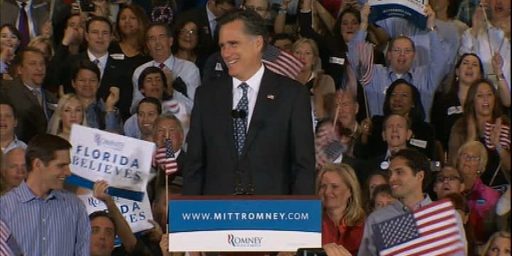
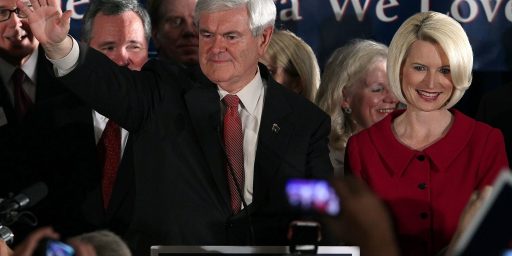
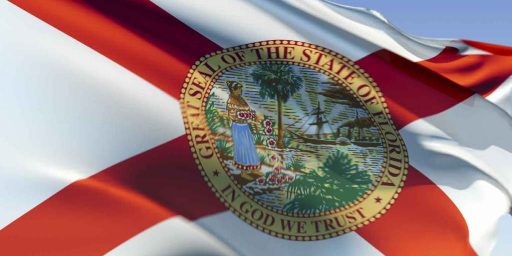
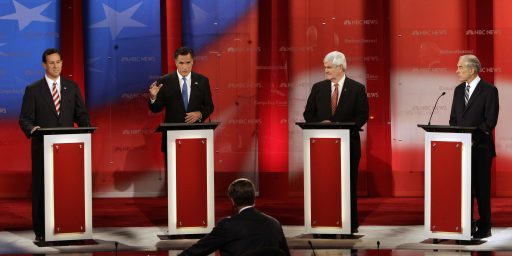
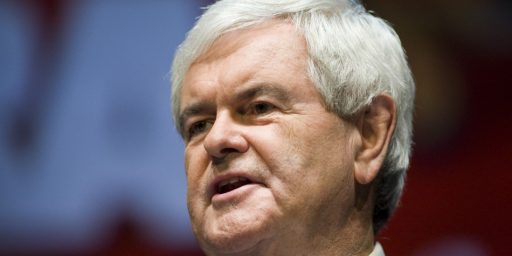
Given that the House and Senate set national policy, I don’t think that voters choosing candidates for national reasons is a bad idea. When considering a candidate for federal office, you should be thinking beyond the boundaries of your district.
I’m horrified about where half the country apparently wants to lead us, but that’s another issue.
There are lots of local offices. Those are the ones that should be decided on local issues.
Disagree…Democrats are running on local issues, and pocketbook issues like Health Care.
Please skip the “both sides do it” routine.
It’s a big piece of how we got here.
I’m pretty much in agreement with Doug, but would stress Gingrich’s 50%+1 rule and the modified Delay rule as being important mechanisms. It used to be that, say, the Cotton State Congress critters would work together to forward interests regardless of party. Ditto for States heavily dependent on military contracts, fishing or what have you. But that kind of wheeling and dealing has been minimized dramatically. A bill is going to pass with virtually all Republicans and almost no Dems or vice versa. There is no upside in crossing the aisle and therefore very little ability to portray yourself as the watchguard of local issues. All big bills are huge messes too complicated to point to a corner on Cotton and say, “that’s mine, I did that for you”. And although in the transition time they could at least take important local donors aside and make their case, now those donors have been eclipsed by out of state billionaires or PACs.
@Gustopher:
Imagine a bill X that affects Y district negatively, but the party of that district’s representative supports it. Does the representative from Y vote as his party wants them to, or against it?
I don’t know about all this. It has become MORE National, but there is still local in these battles. Just look at Wexton vs. Comstock, Doug. They attack each other over taxation at the State and Local Level as well as transportation (66 tolls), but they do also try to pin each other to national figures like Comstock to Trump and Wexton to Pelosi….That is one thing I look forward to tomorrow, no more ads – Wow, that race had a ton locally, was nuts.
Or maybe politics is extra-terrestrial…
When they say, take us to your leader…does anyone want that to be Dennison???
https://www.nbcnews.com/mach/science/scientists-say-mysterious-oumuamua-object-could-be-alien-spacecraft-ncna931381
@MarkedMan: Yes! As representatives became increasingly unable to bring home the bacon, their only out was to blame it all on the other side (as well as on the pernicious idea that government was the problem). Today, officials can only point to their willingness to toe the line.
@Kathy: There’s a balance — how negatively? The Congress Critter has a responsibility to their district, and part of that responsibility is in trying to change Bill X to keep it from hurting their district.
I think the problem has more to do with the Gingrich 50%+1 and the Hastert rule (“grab as much as you can get away with”), than with national politics being determined by national issues.
Gingrich brought in two things at once — a clear national agenda (the Contract With America), and a refusal to compromise. Only the latter was inherently bad.
To be honest, the O’Neil adage is given more credence than it is due. For example, if all politics was, in fact, local we would see more regional parties. Instead, we have a history of consistently national parties.